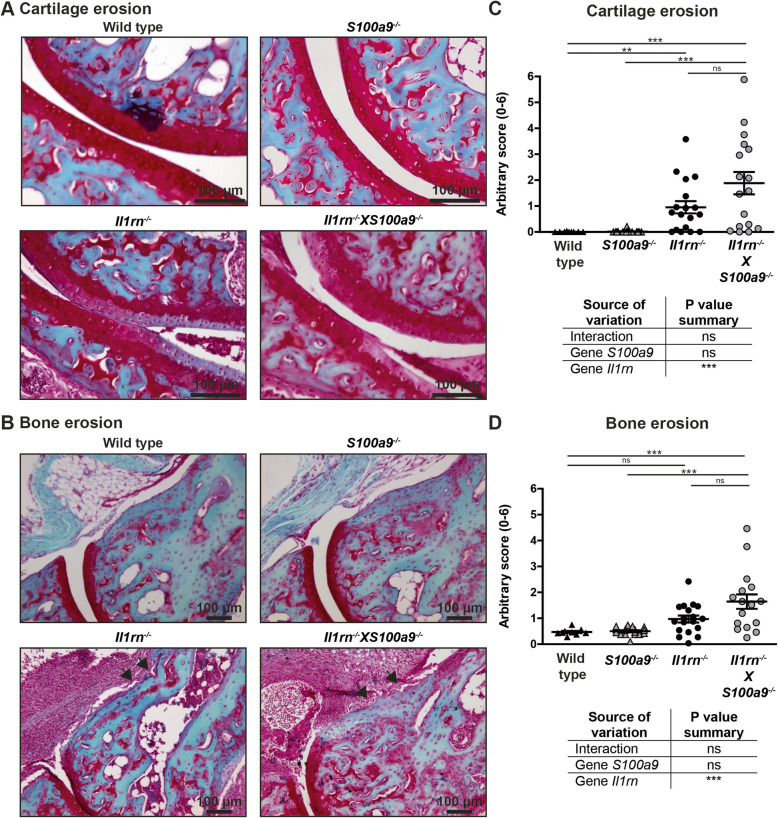Fig. 2.
The absence of S100A9 does not ameliorate cartilage and bone erosion in 12-week-old Il1rn−/− mice. Representative photomicrographs of Safranin-O/Fast Green-stained sections showing cartilage and bone erosion in the ankle joints of wild type, S100a9−/−, Il1rn−/−, and Il1rn−/−XS100a9−/− mice (A, original magnification ×200 and B, original magnification ×100). Quantification of cartilage erosion at the tibia, proximal and distal sides of the talus, and proximal side of the navicular bone with an arbitrary score showed increased cartilage erosion in Il1rn-deficient strains compared to wild type and S100a9−/− mice. However, no significant differences were observed between Il1rn−/−XS100a9−/− and Il1rn−/− mice (C). Additionally, quantification of bone erosion at 8 locations along the tibia, talus, and navicular bones with an arbitrary score showed increased bone erosion in Il1rn-deficient strains compared to wild type and S100a9−/− mice while no significant differences were observed between Il1rn−/−XS100a9−/− and Il1rn−/− mice (D). Scatterplots are shown, with horizontal and vertical lines representing mean ± SEM values. Each data point represents the sum score of the right and left ankle joints of one mouse. ns not significant, **P < 0.01, ***P < 0.001. Results of the two-way ANOVA with interaction are presented in the table

